Moving to Kuwait Guide
As evidence of this, at present expats makeup roughly 70% of the population. This has a number of distinct benefits for fresh arrivals looking to integrate into Kuwaiti culture. Firstly, the prevalence of expats in the country means that you can feel confident in meeting other like-minded individuals and rapidly assimilating a new circle of friends.
Another benefit is that you will find many English speakers in the country, and most road signs are bi-lingual. For individuals able and willing to adapt to a largely Muslim country – with all the cultural differences this brings – this can make easing into life in Kuwait that much easier.
But it’s not just an active expat community that Kuwait has to offer visitors and expats alike. Benefitting from the sixth largest oil reserves in the world, Kuwait has a tremendously strong economy and one of the most resilient currencies in the world. Much of this wealth has been re-invested into infrastructure over the years, making for world-class education and healthcare systems.
Lastly, the native Kuwait people are famous for their hospitality, which can make getting to know the local people a true pleasure.
Kuwait Weather
Kuwait is a desert state, and as a relatively small country displays little geographic diversity in weather patterns. Broadly speaking summers are exceptionally hot and typically long; temperatures of 50’C are not unheard of between April and October. Furthermore sandstorms are experienced during these hotter months, and may last for days at a time.
That said, the cold winds that blow in from neighbouring Iraq over winter can make the off-season far cooler than many other Middle Eastern nations. Daytime temperatures in the winter months – which run from December to March – may drop to just 8’C. Night-time temperatures may even fall as low as freezing point.
As an arid desert nation it is within the winter months that most precipitation is experienced. However far from gentle rain this often takes on the form torrential thunder storms during which travel can become problematic.
The reality is that the climate in Kuwait is likely not the most tempting aspects of travel here. That said, thousands of expats each year flock to the country, and few are disappointed by their experience. As you will discover, the potentially extreme weather conditions are in reality a small price to pay for the many wonders that Kuwait offers to open-minded visitors.
Kuwait Weather
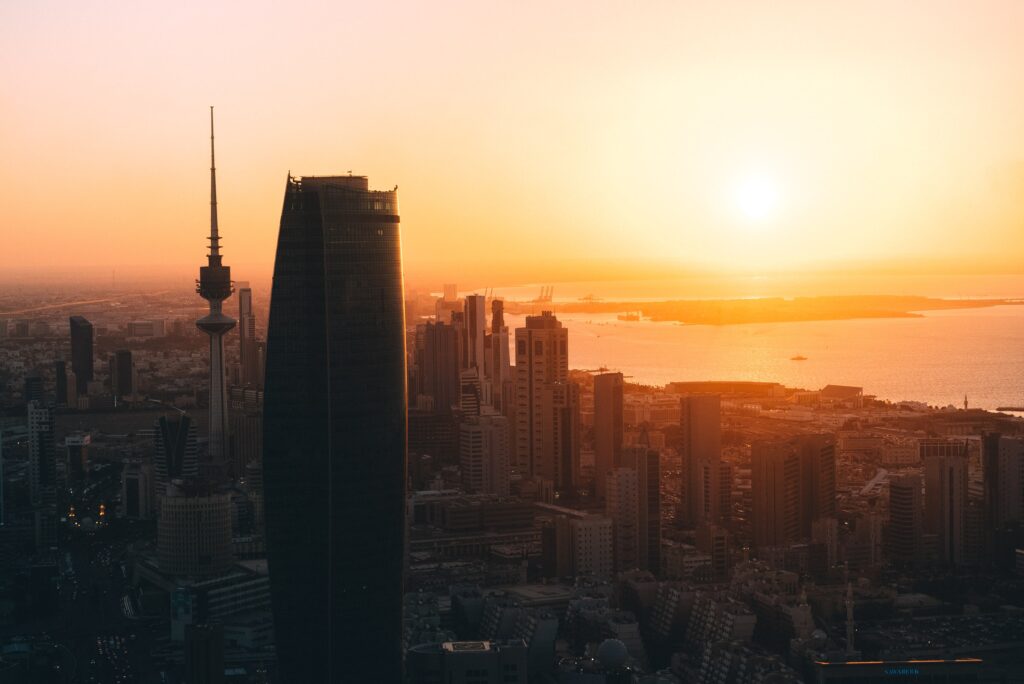
Kuwait Culture
While visiting Muslim nations will always lead to a degree of culture shock, Kuwait is perhaps rather more progressive than many other Middle Eastern countries. Impressively, women have full right to vote and can even stand as electoral candidates. Furthermore, the legal system mimics that of many Western nations; with Sharia law only governing family law.
Kuwaitis are also accepting of more casual dress; especially in urban areas like Kuwait City it is not unheard of for gentlemen to sport t-shirts and shorts rather than more traditional garb.
That said there are some differences that should be borne in mind so as to not cause offence to this proud yet hospital people. For one, care should be taken to dress appropriately, especially by ladies, in areas of religious importance.
As a Muslim nation Ramadan holds great significance in the religious calendar. At such times of year, it is advisable to avoid eating in public. Such behaviour has been known to result in arrest or a significant fine.
Furthermore, couples visiting this fascinating country are advised that cohabiting with an unmarried partner is not permissible. Even among married couples, it is forbidden to show physical intimacy in public.
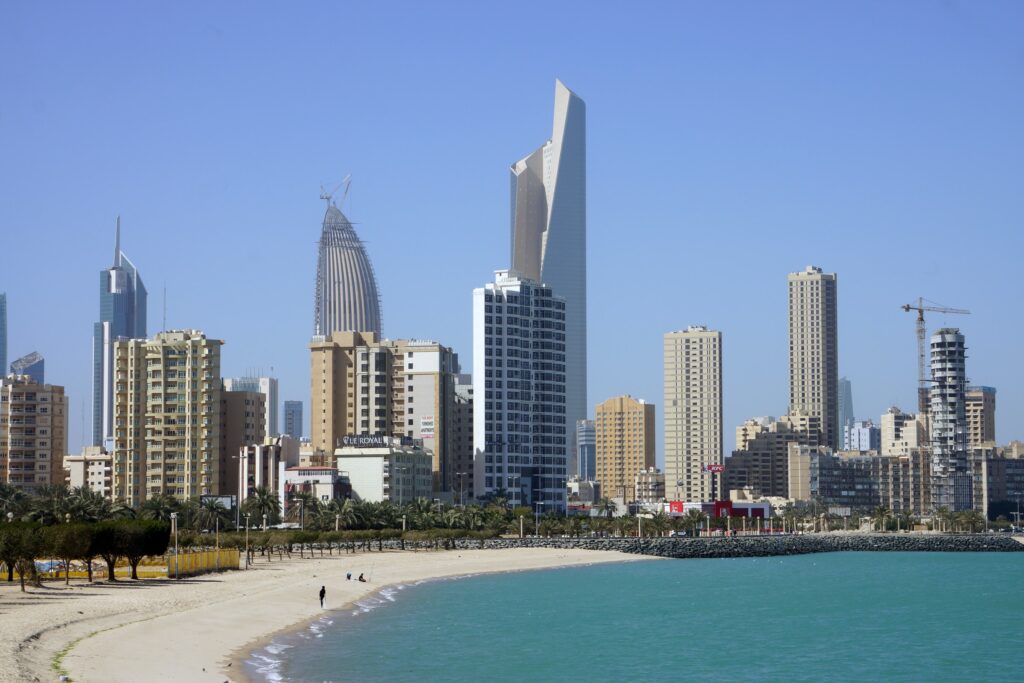
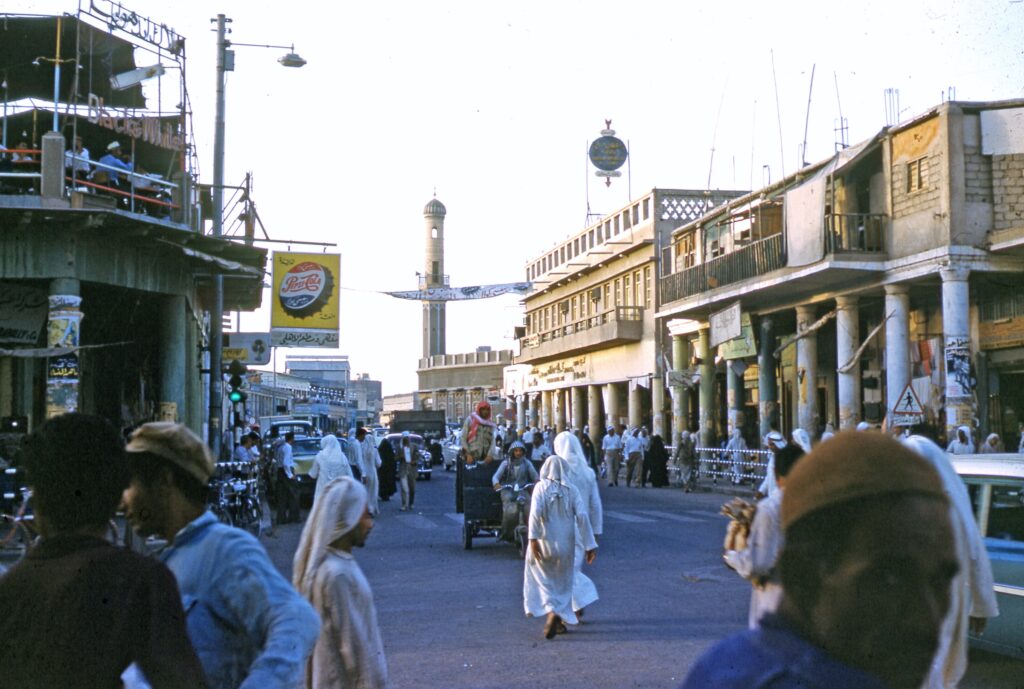
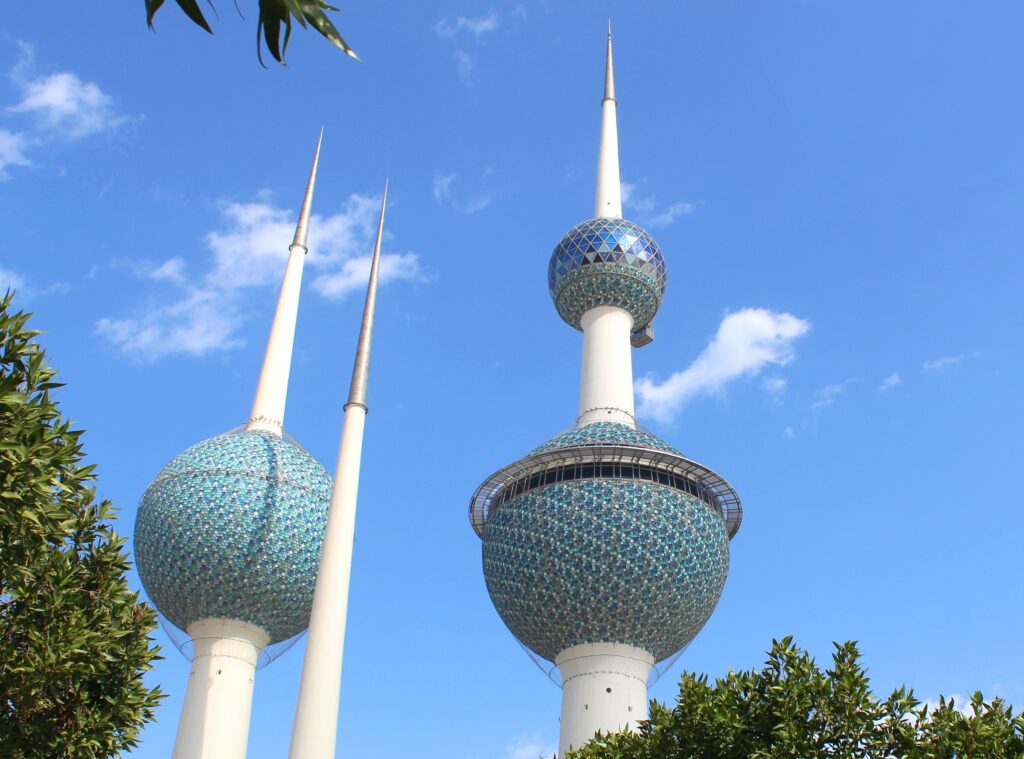
Indeed, such are the rules surrounding proper conduct around members of the opposite sex that it is generally considered impolite to enquire about female relatives of acquaintances. Furthermore, should men present a gift to a Kuwaiti female, it is polite to explain that it is a gift from your wife.
The most noticeable cultural trait in Kuwait is one of hospitality and politeness. It is considered a great honour to be invited to eat in a Kuwaiti home, and under such circumstances, it is customary to greet others in order of seniority.
In family situations, it is considered polite to greet the eldest members of the family first. In business meetings, one should begin greetings at the top of the corporate ladder and work your way down to more lowly-ranked individuals. For ease, it is normal to file into a meeting in rank order, thus allowing you to be greeted appropriately on entry.
Visitors should note that as a Muslim country Friday is considered the holy day. As a result, most businesses will be closed on this day; expats should plan appropriately to ensure this does not cause inconvenience.
Kuwait Language
The official language in Kuwait is Arabic, though this is a slightly different dialect from the version spoken elsewhere.
As a former British protectorate English is spoken frequently in the country, as is Farsi. English is now taught in schools, so while a limited understanding of Arabic is likely to beneficial, the reality is that many expats survive almost exclusively by speaking English.
Kuwait Public Transport
Expats report mixed views about driving in Kuwait. On the one hand the roads are excellent and the petrol cheap. Renting or buying a car can therefore represent a very practical way to get around this beautiful country. On the other hand, drivers in Kuwait are frequently aggressive on the road, which can mean that less steady-nerved expats and tourists find it an unpleasant experience; especially in the larger cities.
The most common form of transportation in Kuwait are taxis, which are typically reasonably priced. Taxis in Kuwait are easy to identify as they sport an obvious red/orange license plate. In Kuwait meters are rarely used so agree a price with your driver before entering the vehicle.
Many authorities recommend pre-booking a taxi for safety, as Kuwaiti taxi drivers have developed a reputation for aggressively touting for business. In order to avoid this potential harassment it can be wise to ring head to a reputable taxi firm, though the cost of your ride may prove more expensive than simply hailing down a cab on the street.
An alternative mode of transport comes in the form of local buses. These are typically reliable, safe and cheap, though routes are designed to benefit locals rather than tourists. Visiting some of the bigger tourist attractions by bus can therefore entail a considerable walk from the nearest bus stop.
Kuwait Public Transport
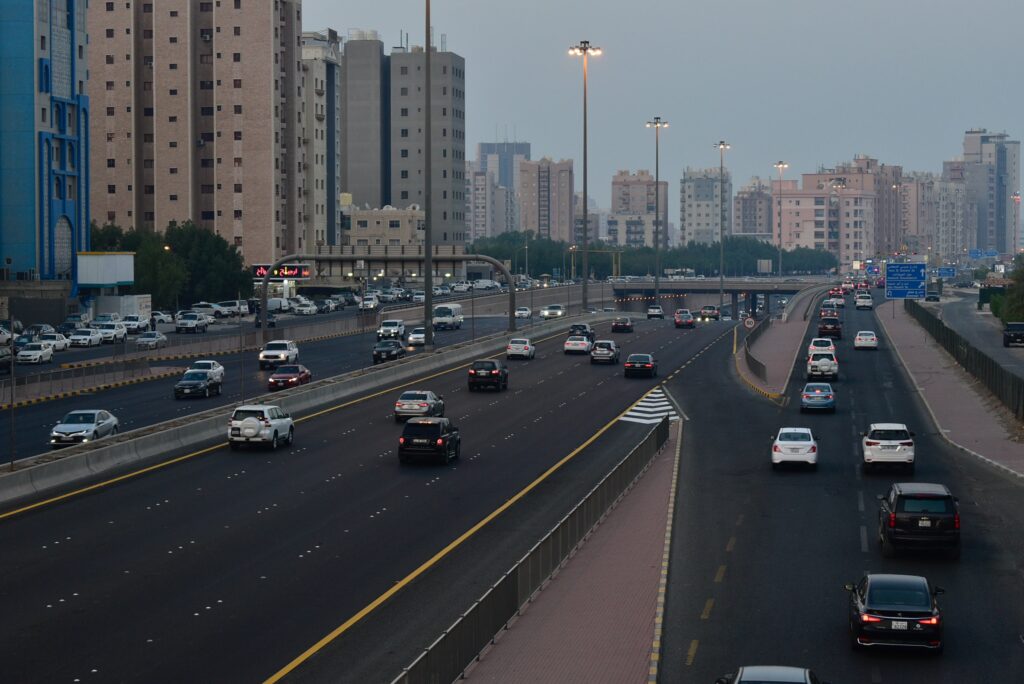
Healthcare in Kuwait
Healthcare standards in Kuwait are exceptional, and the hospitals to be found here are considered some of the most modern in the world. Furthermore they are typically staffed by foreign-trained doctors who have been attracted by the generous salaries on offer. This means that finding an English-speaking medical practitioner is rarely a problem.
On the other hand healthcare in Kuwait can be expensive, and for this reason, it is wise to invest in suitable international healthcare insurance or international travel insurance for expats before leaving home.
There are a surprising number of private healthcare facilities in Kuwait, most of which offer English-speaking doctors and short waiting times. Possessing a suitable overseas health insurance policy opens up this world of treatment, and is generally the best route for expat healthcare in Kuwait.
To access an ambulance in Kuwait simply dial 112 from any phone.
Kuwait Currency
Mimicking a number of other Middle Eastern countries, the official currency in Kuwait is the Dinar. This is further sub-divided into one thousand “fils”.
The Kuwait Dinar is considered one of the strongest currencies in the world – which can make Kuwait an expensive destination for tourists. For expats the problem is less defined; a lack of income tax in Kuwait means that salaries can be generous.
As a Muslim country, it is important to appreciate that bounced cheques and unpaid bills are looked dimly upon. Such incidents can result in fines or even imprisonment. You may also be prevented from leaving the country until any outstanding sums have been settled. As a result, visitors are strongly advised to keep an eye on their current account balance, and not to offer payment without being certain they have the liquid funds to cover your transaction.
Some tourists report problems exchanging currency in Kuwait, so access to funds is easiest through one of the many ATMs present around urban areas. Pleasantly, as a low-crime country, there are very few incidents of muggings or thefts, so these cash machines can generally be used in relative safety.
Schools in Kuwait
Kuwait imposes compulsory education on children between the ages of 6 and 14, with the academic year typically running from September to June. Sadly, while educational standards are deemed to be high, with lessons in Arabic many students find it difficult to adapt.
As a result of this, many expat parents opt instead for one of the many private international schools present here. Under such circumstances, most lessons are given in English – though even in private schools students are required to study Arabic.
While the standards of education are considered high, and class sizes are enviably small, the waiting lists for international schools can be considerable. Planning well ahead of any move can therefore be beneficial.
Lastly, note that as elsewhere in the world, the fees at such schools can be high, so parents should do their research well in advance in order to budget suitable funds for their children’s education.
Kuwait Food and Drink
Kuwait benefits from a wide range of ethnicities in its population, which has resulted in a diverse culinary landscape. Popular ingredients include hummus, rice and seafood. Key ingredients are combined into hearty combinations, providing a delicious range of satisfying meals; perfect for keeping old the cold in winter.
One of the most popular classic Kuwait dishes is known as Tashreeb, and compromises a tomato and lamb stew, served with mixed vegetables and freshly-baked flatbread. Another commonly-experienced dish is Qouzi; grilled lamb stuffed with rice, eggs, onions and spices.
Possibly the most unusual Kuwaiti dish is Margoog, a rich meal comprising tender meat and part-cooked dough.
Note that in Kuwait it is considered polite to leave some food on your plate; emptying your plate will likely result in more being added when you least expect it. This same rule applies both in public eating establishments and when dining privately at an acquaintances home.
Kuwait Food and Drink
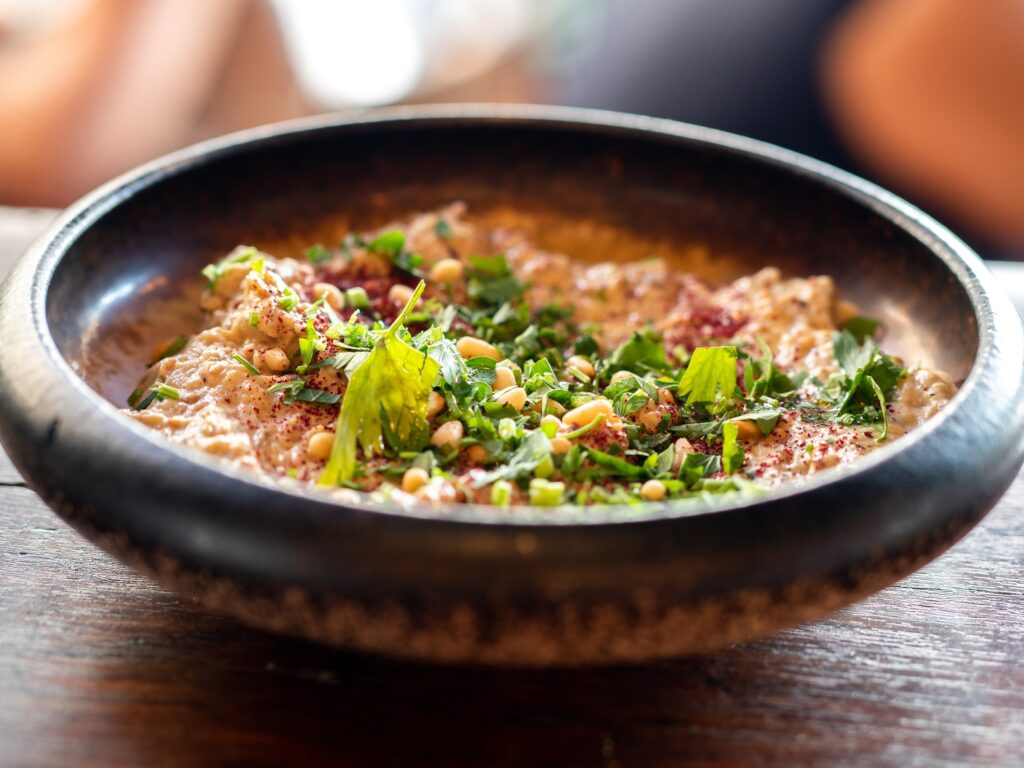
Kuwait Crime
Kuwait is generally a very safe and law-abiding country. Like any other, there will always be a small number of petty crimes but a few basic precautions will normally eliminate most risks. Note that Kuwait takes public order very seriously indeed, and drunken behaviour in public can lead to a fine or even imprisonment. Acting in a socially-responsible manner should therefore be considered of the utmost importance at all times.
Kuwait shares a border with Iraq; indeed it was from Kuwait that the allies originally launched the Gulf War in Iraq. This has meant tensions along the border remain high, and terrorist activity in Kuwait, while rare, can still be a problem. For this reason, visitors are advised to avoid the border areas where tensions can escalate rapidly. In addition, keep an eye on local media for any reports of terrorist activity in the area.
Arguably the greatest risk for first-time visitors to Kuwait is the excessive heat. Expats and visitors alike should take care during the summer months, so as to avoid the potentially serious effects of heat stroke. Avoid going outside at the peak of the day, and ensure you consume plenty of fluids. Remember that in the heat of the summer months air conditioning and shade are your friends.
As a side note, when travelling around Kuwait be sure to carry with you suitable volumes of liquid. If your car or bus breaks down in fifty-degree heat you’ll be glad to have a beverage with which to quench your thirst.
Limited reports of harassment for single women have been reported in Kuwait. Generally speaking, it is advisable for ladies, especially when travelling alone, to dress as conservatively as possible so as to avoid the unwanted attention of male suitors.
Places to Visit in Kuwait
For a small country, Kuwait has much to offer visitors. From ancient historical sites to the very latest innovations, travellers and expats alike enjoy a diverse collection of destinations. This means that there is almost certain to be something of interest, no matter your personal tastes may be. Here are a few of our top recommendations for your time in Kuwait:
Kuwait Towers
Arguably Kuwait’s most iconic landmark, the Kuwait Towers comprise three different spires, the largest of which measures in at 187 metres in height. However the Kuwait Towers aren’t just impressively-proportioned ornaments; they also serve practical purposes too.
The largest of the three towers houses a unique restaurant, located within a sphere half way up the column. As if the views from such a height weren’t jaw-dropping enough, the restaurant also slowly rotates, so that one can enjoy a constantly changing scenery while enjoying a meal.
Kuwait Towers
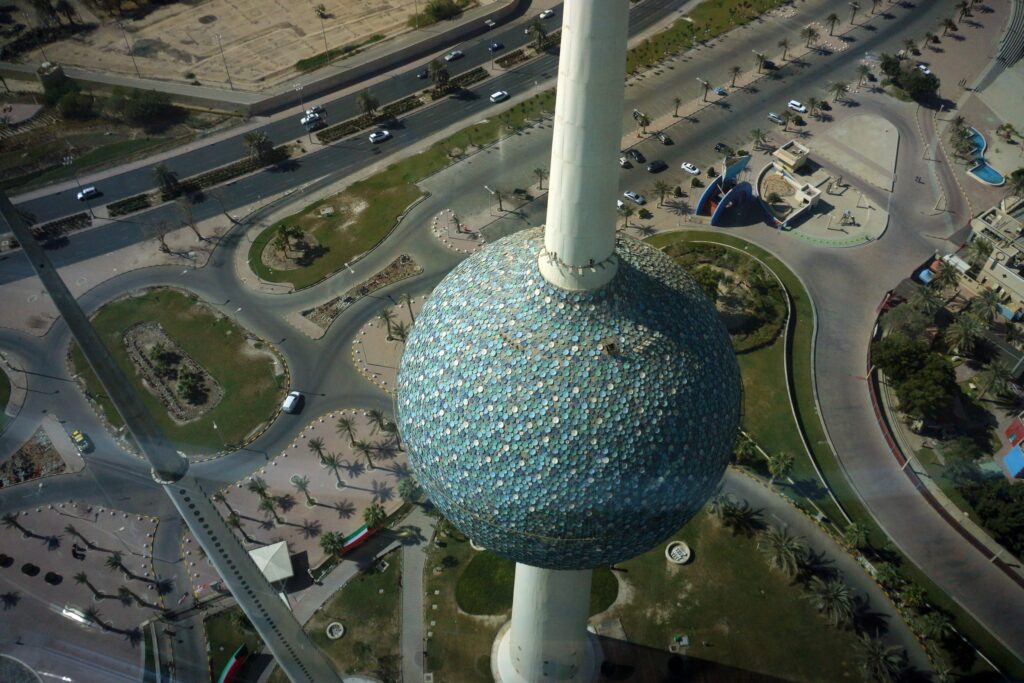
Tareq Rajib Museum of Islamic Arts
Originally launched in 1980, this museum presents the private collection gathered by first minister Tareq Sayed Rajab. Categories of antiquities on offer include ceramics, jewellery, glasswork and manuscripts. Combined, they help to tell the story of Islam’s history and impact on the world.
Failaka Island
Located just 20km off the coast of Kuwait, Failaka Island offers a glimpse of a bygone era. Once colonized by the Greeks, the Babylonians and Byzantines (at different times), this island is rich with ancient buildings and archaeological sites. For history fanatics there can be fewer places offering a greater diversity of ancient cultures all within a short distance of one another.
Dhow Harbour
Like many of the Gulf States, Kuwait has rapidly developed into a high-tech nation. But the country has also been mindful of retaining its cultural history. Dhow Harbour provides just such as experience; an opportunity to explore the old wooden dhows originally used in the region for fishing and pearl diving.
Green Island
Green Island offers, among other things, a Roman Amphitheatre with a constantly revolving calendar of plays and music, a public swimming pool, a 35 metre high tower providing panoramic views of the island and a range of restaurants and cafes serving family favourites.